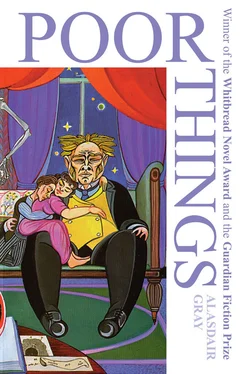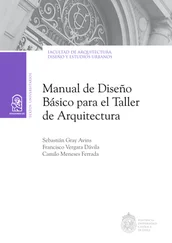This record of our early struggles is dedicated to my wife, though I dare not show it to her since it tells of things neither she nor medical science dare yet believe. But scientific progress accelerates from year to year. In a short time the discovery may be made which Sir Colin Baxter communicated only to his son, and which will prove the factual ground of all I have written here.
FINIS



A letter from
Victoria McCandless M.D.
to her eldest surviving descendant
in 1974
correcting what she claims are errors
in
EPISODES FROM
the EARLY LIFE
of a
SCOTTISH PUBLIC
HEALTH OFFICER
by
her late husband
Archibald McCandless M.D.
b.1857 — d.1911
Dear Grand- or Great-Grandchild,
By 1974 my three strong, sprouting lads will be dead or senile, so all other surviving members of the McCandless dynasty will have two grandfathers or four great-grandfathers, and will easily laugh at the aberration of one. I cannot laugh at this book. I shudder at it and thank the Life Force that my late husband had just this single copy printed and bound. I have burned every scrap I could find of the original manuscript and would have burned this too, as he suggests in his verse on the fly-leaf; but alas! it is almost the only evidence left that the poor fool existed. He also paid a small fortune for it — enough to feed, clothe and educate twelve orphans for a year. The illustrations must have doubled the printing costs. The portrait of me is copied from one in an illustrated newspaper of 1896, and strikes me as a good likeness. If you ignore the Gainsborough hat and pretentious nickname it shows I am a plain, sensible woman, not the naïve Lucrezia Borgia and La Belle Dame Sans Merci described in the text. So I post the book to posterity. I do not care what posterity thinks of it, as long as nobody now living connects it with ME .
Having reread that first paragraph I notice it suggests my second husband was as repulsive as the first. Untrue. I married Archibald McCandless because he was convenient, and as the years slipped by I came to like and rely upon the man. He was not much use to anyone else. He calls his book “Episodes from the Early Life of a Scottish Public Health Officer”—he was a Glasgow municipal health officer for exactly eleven months, resigning from the job as soon as he became chairman of the Glasgow Civic Improvement Trust. Our investments, not his brilliant mind, got him that position. It required him to preside at certain meetings, but he had most of the week to himself. Not all this free time was wasted. He helped Mrs. Dinwiddie (my faithful housekeeper) with the early nurture of our children, taking them for walks, telling them stories, crawling about the floor with them, helping them build fantastical cities out of bricks and cardboard, and draw up fantastical maps and histories of invented continents. These tales and games gave them a rich variety of ideas and information. His scientific bent ensured that the queerest monsters had impeccable Darwinian-evolutionary pedigrees; the weirdest machines never contradicted the laws of thermo-dynamics. The education he gave them was very like the playful one I had been given by Godwin Baxter, and used many of the same toys, books and instruments. We still kept a small zoo in the back-garden, though the last of Godwin’s dogs died five years after he did .
There is an old Scots proverb: “The shoemaker’s bairns are aye the worst shod.” It is a fact that I, the fearless advocate of homely cuddling and playful teaching, was kept out of the house by my clinical work for most of the week, while other responsibilities took me out of Glasgow for part of every year. My husband practised what I preached. I sometimes feared he was making early childhood too attractive for the lads so that their adult lives (like those of my first husband, and Bismarck, and Napoleon, and more commonplace criminals) would become bad boyish day dreams made real. I need not have feared. When they joined the society of other boys in Glasgow High School (founded in the twelfth century) they grew ashamed of their idle, dreamy fantastical father and emulated their practical, busy-in-the-world mother. The eldest, Baxter McCandless, is our mathematician. He took an honours degree last year and now works in London for the Department of Imperial Statistics. Godwin, our engineer, moves so briskly between Gilmorehill and the Andersonian Institute that I never know where he is studying. He says steam and oil-fired engines are dangerous anachronisms, that we must prepare to draw energy electrically from the highland lochs and cataracts while gradually abandoning coal-mines and oil-wells whose wastes poison the air and soil the lungs. The youngest, Archibald, is in his last year at school and has two obsessions. One is painting garish water-colour landscapes, the other is commanding the Glasgow High School Army Cadet Corp. I hate military training, of course. The sight of young men marching in regular rows, each imitating the stiff movements of a clockwork doll while their movements are controlled by a single screaming sergeant — that sight sickens me even more than the sight of young women in a music-hall chorus-row, kicking up their heels in unison. However, I recognize that young Archie’s love of uniformed comrades balances his Bohemian individualism. When these sides of his nature at last harmonize he too may become a fine public servant — perhaps the best of them .
In writing about my boys I have forgotten their father: always an easy thing to do in his later years. He spent more and more time in his study, scribbling books printed at his own expense since no publisher would pay for them. 30Every second year I would come down to breakfast and find another blue-black volume beside my plate, with a marker in the dedication page which always bore the message TO SHE WHO MAKES MY LIFE WORTH LIVING. As I leafed through it, trying to show interest I could not possibly feel, he would watch my face with a maddening expression of timid hope and humorous resignation: an expression which made the soul of me want to grip him and shake him into useful activity. He would have been a decent general practitioner had he not used Baxter’s money to buy the idleness he mistook for freedom. Having fulfilled his mother’s ambition by joining the middle class he had no wish to reform it from inside, no wish to help the labouring class reform us (and themselves) from outside. But example is the best reproof I know. I would lay the book down, walk round the table, kiss him kindly, thank him and go off to work at my clinic .
In 1908 we found he had disseminated sclerosis (he diagnosed it himself) so it became easy to be kind. He relaxed into the disease, shifting his bed into the study and ordering a special table which let him write without getting up. He could easily have lived longer had he exercised, but he knew that and I would not bully him. I kept the marriage sweet by having a game of draughts, a light supper and a chat with him most nights before retiring. Increasingly our talk recalled our earlier days with Godwin Baxter. I also saw he was engaged on another book .
Читать дальше















